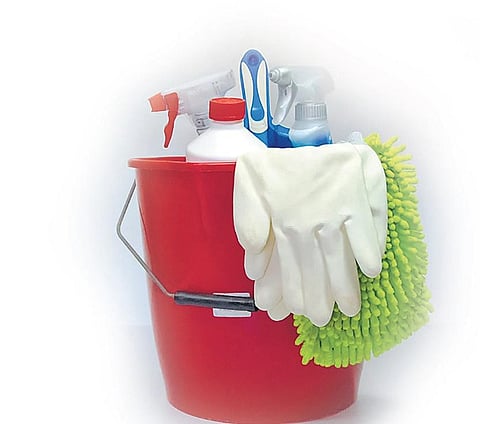

Zero maintenance, please” — This is a common request from clients today looking for a new home or building. While designing spaces and buildings with ‘clean-ability’ in mind, it is possible for an architect or designer to create spaces that are cleaner, healthier and require fewer cleaning products to maintain. However, it must also be noted that everything on this planet requires some maintenance, including our bodies. So, while the amount of maintenance required can be designed for, making it ‘zero maintenance’ is a pipe dream.
As the health and environmental impacts of conventional cleaning products are coming to light today, it is evident that we clearly require more brands that offer a healthy, green and effective cleaning choice to the consumer. These products must be non-toxic, biodegradable, and made from renewable resources. Lately, even personal hygiene products such as face washes, body washes and scrubs have come under the scanner for their negative impact on the environment due to the inclusion of micro beads in them. It is easy to go environment friendly if we know what to look for or recognise what is causing harm to our health and environment.
On the home and building maintenance front, cleaning products are everywhere — on dishes, countertops, furniture, clothes, floors, windows, and floating through the air as fresheners and insect repellents. In our battle against dirt and germs, we need to ensure we are doing things right rather than causing further damage. Most of the conventional cleaning products we are so familiar with have several toxins in them that all have health and environmental implications. So here are some things for you to look out for and avoid if possible.
Phthalates are found in most fragrance products, including air fresheners, soaps, and sometimes even napkins and toilet paper. These have an adverse effect on the endocrine system and are best avoided as they are absorbed through the skin and go straight to our organs. Look out for fragrance-free or all-natural products. It is best to consider earth-friendly essential oils, which can be used through a simple diffuser.
Triclosan is found in anything that is ‘antibacterial’— once these enter our water sources, they continue killing bacteria and algae, thereby disrupting the whole ecosystem. These are also easily absorbed by the skin and is a suspected carcinogen — so avoid any hand sanitizers with triclosan by opting for one that is alcohol-based instead.
Ammonia is another ingredient found in bathroom as well as glass cleaners. Ammonia evaporates and produces a ‘streak-free’ shine that all of us love. However, this doesn’t come without its side effects as well as it can be instantly inhaled — it exacerbates any type of lung conditions, particularly asthma and other breathing problems. Further, if we mix ammonia with bleach, it can create a very poisonous gas. Interestingly enough, vodka has been listed as a great substitute to ammonia — make your glass happy in more ways than one by cleaning with vodka. So, look out for what goes in your cleaners and other cleaning products — make the switch and stay healthy.
Pavitra Sriprakash
The writer is an architect, urban designer, dancer and chief designer at Shilpa Architects